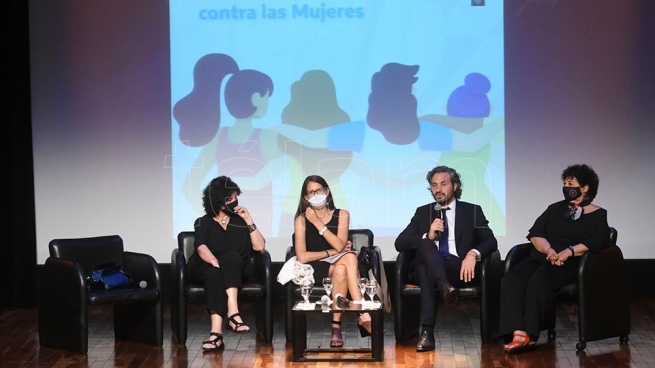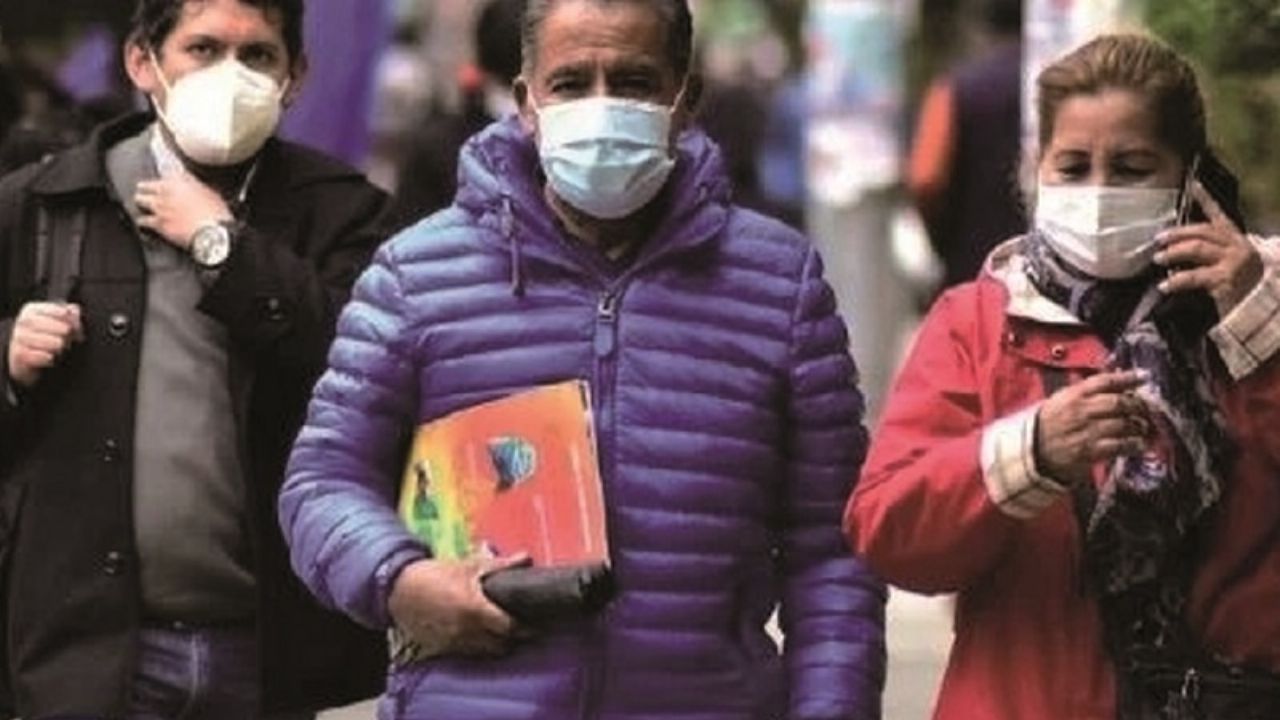Foreign Minister Santiago Cafiero and the Minister of Women, Gender and Diversity of the Nation, Elizabeth Gómez Alcorta, presented this Tuesday the protocols against violence in the scope of the Ministry of Foreign Affairs, within the framework of the activities carried out for the International Day for the Elimination of Gender-Based Violence, which had the participation of the referents and researchers Dora Barrancos and María Sondereguer.
“We have to apply the penalty and the law where necessary, but we must have a pedagogical task from the educational and cultural aspects to advance in a society that has as its axis the eradication of violence of all kinds and especially violence against gender motives, “said Cafiero.
The chancellor called to “believe in the human condition” because “that is how we are going to be able to find and harmonize such unjust communities”, as well as “instances of violence that are unacceptable.”
Cafiero highlighted the “progress” that was made in conjunction with Gómez Alcorta, especially because the creation of the Ministry of Women “also forced the implementation of gender policies in the rest of the ministries” and “has made a transversal policy.”
The minister called for promoting “public policies that have the most diverse views printed on the stamp of manufacture” because it is “the fairest way to build a society free of violence.”
Gómez Alcorta defined Argentina as “an absolutely incredible country in terms of gender” that is “avant-garde at the regional and global level,” and added: “This is the government in our history that has done the most in such a short time for policies of gender and diversity, not only because of the creation of a Ministry that ranks this agenda at the highest level of state institutions “.
The protocol against gender violence of @CancilleriaARG that we present with @SantiagoCafiero It is a tool to transform the State and, also, a call to challenge ourselves politically and personally to become guarantors, one for another, of our rights. pic.twitter.com/XdZ5p2QieV
– Eli Gomez Alcorta (@EliGAlcorta) December 7, 2021
In that sense, he pointed out that the formation of this Ministry is a “symbolic but also material” advance and that in addition to that decision, others were taken that make up a kind of “fabric or embroidery of public policies”, among which the Micaela Law stood out. for the state level and the National Plan of Action against violence.
In addition, he highlighted the contribution made by the Foreign Ministry to this last plan, for which it included “a guide for Argentine representations abroad to address gender violence.”
“They are much more common than I imagined before being a minister. They are Argentines who are living abroad, without any of the networks that exist when it happens while in their country,” he said.
Gómez Alcorta pointed out that Argentina’s prominent role “has to fill us with pride but it also has to fill us with responsibility” and that “it cannot be a utopia to live a life free of violence.”
The presidential advisor on gender issues and a doctor in history, Dora Barrancos, and the researcher in gender, memory and human rights studies, María Sondereguer also spoke.
Sondereguer combined November 25 with March 8 as “two dates of commemoration of women’s rights that determine extreme violence against women and feminized identities” and that recall two “episodes” that are a “sort of narrative nucleus in the history of women and propose a message “.
Then she referred to the expansion of rights that the declaration of Human Rights at the United Nations meant, which “is only 70 years old” and the first vote of women in Argentina in 1951, to recall that “very recently that women have been citizens “.
Meanwhile, Barrancos, in addition to mentioning normative specifications promoted by the Government of Alberto Fernández and that in the country “we have a fundamental pedagogy”, called to “not think that violence can be eradicated only with punitive measures and the Penal Code in the hand”.
He also stressed that “Argentina is very dynamic for the assimilation of protocols”, which have a “pedagogical sense” in addition to being “an interpellation”, and assured that “due to their symbolic value they should be on everyone’s table. people who work in the Chancellery “.
“I understand that here there are a relative number of complaints during the month,” he said, and affirmed that “once the protocol begins to act” with certainty “there will be more activity” as “indicates our experience”
Barrancos commented that “privacy is guaranteed” because it is an “absolute, not relative right” and he stopped at the sanctions to be applied.
The General Director of Consular Affairs, Ana Laura Cachaza; the Coordinator of the Gender Focal Point (FOGENE), Tamara Oberti, and the Director of Women and Gender Affairs of the Ministry of Foreign Affairs, Silvina Montenegro.










